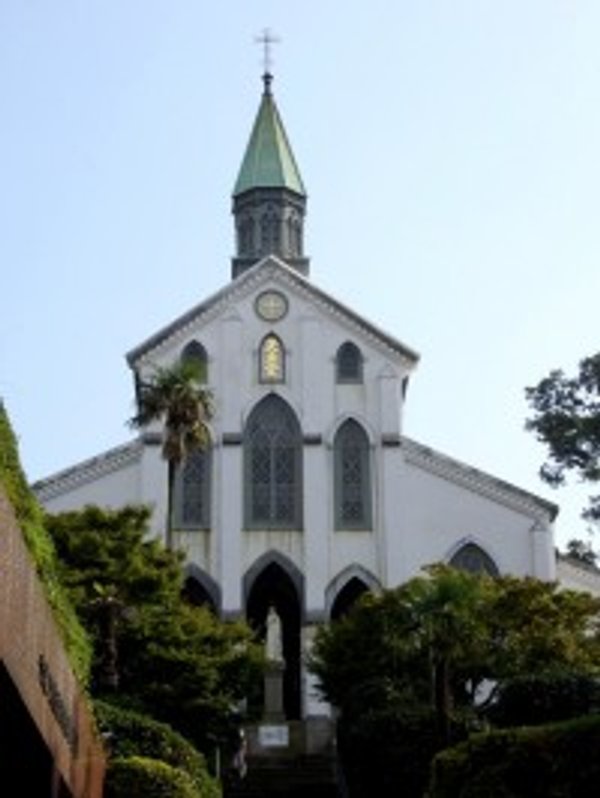Three of its readers tell us how “The Way” has shaped their life.
* * * * * * *
Toshimi Nakai , Nagasaki, Japan
November 29, 2000
Constancy has never been my strong suit; often I've regretted not finishing what I'd started. But there is one glowing exception: at college I converted to Catholicism.
One day, nothing special, a friend and classmate dropped by my dormitory room. Before leaving he said, "Listen, Toshimi, why not read this?" referring to a book he left behind.
It was a paperback entitled “The Way” by Father Josemaría Escrivá. It consists of 999 points for reflection. The first reads, "Don't let your life be sterile. Be useful. Blaze a trail. Shine forth with the light of your faith and of your love." It hit me between the eyes, though I'd yet to know anything about Christianity.
Two years after having stumbled upon “The Way”, I became a Catholic. Perhaps the place where I live had something to do with it. The spiritual atmosphere of Nagasaki, where there are more Catholics and churches, certainly influenced me.
All that was some 20 years ago. There's been never regret over my conversion. In fact, my gratitude keeps on growing.
* For the full article of Mr. Nakai, see https://opusdei.org/art.php?p=1881

* * * * * * *
Rev. Paul Kais, USA
September 03, 2002
I joined Opus Dei in 1989 when I was in college. I was introduced to the activities of Opus Dei by a friend, and quickly began to attend classes and receive spiritual direction. I was struck by the idea of practically putting one's faith into all facets of one's life. I began using Escrivá's "The Way" as spiritual reading and was struck by the first point: "Don't let your life be sterile. Blaze a trail...."
I kept reading, and going deeper and deeper into the spirit of Opus Dei. It was as if something I had been searching for had been found - a more complete notion of the Christian life. All are called to be saints, right where they are. It is not a question of doing anything strange, but living one's commitments and circumstances as a Christian. Such a simple idea, but at the same time its radical character led me to think this was the way to change the world. To "re-Christianize the world" through one's personal quest for holiness, and the dedication to one's friends and fellow workers which seeks to help them find true happiness by taking their Christian vocation seriously.
Another point from "The Way" struck me: "These world crises are crises of saints...." The truth of this statement, as well as the fact that the true way to change the world is the struggle to grow in the human and Christian virtues, and to take a real interest in the people God places next to one - in one's family, classes, work, etc. - seems simple, but I came to realize that it is the only effective way to channel my idealistic desires to change the world.
I saw the spirit and formation provided by Opus Dei as exactly what I needed, and therefore I saw God was calling me with a vocation to Opus Dei. I was struck by another point of "The Way" which considers the fact that "a life is a small thing to give to God."
* To read the full interview with Fr. Paul, see https://opusdei.org/art.php?p=4342
* * * * * * *
Alexander Zorin, Moscow
November 03, 2007

Alexander Zorin was born in Moscow at the beginning of World War II. He is an eminent Russian intellectual and poet who discovered his faith at 35. He first heard his parish priest talk about Opus Dei and Josemaría Escrivá in 1980, and about a little book called “The Way”.
“Not long after a typewritten copy of The Way turned up in our parish. Back then religious works could circulate only by means of samizdat (typewritten copies). The paper was very thin and the words hard to read, since it was the fourth carbon copy. The first copy, being the best copy, cost much more than the fourth. And the price of the typewritten original was prohibitive.
It was translated into modern Russian, but curiously enough the Scripture citations were in ecclesiastical Old Slavic. The contrast struck me. On the one hand was the book’s clear and resolute spirit, addressed to us, people of today’s world, and on the other was the archaic language, Old Slavic, which broke up the rhythm and made it hard to read. It was probably a cunning attempt by the persons who typed the text to mislead those who were spying on everything we did in the parish.
I bought a copy of the typed version of “The Way” and began to read it, putting a white sheet under each page since the paper was so thin one could see right through it. My Christian friends in Riga made some copies of this copy.
For the past twenty years or so, the spiritual teachings of Escrivá have been my bedside reading. I came to know his points by heart, like a prayer one learns, the way one recalls passages from Sacred Scripture. But now and then I felt impelled to give them my own form and to put them into verse.

In my opinion, “The Way” is much more than a text. It is a guide for action, which helps one to incarnate the newness of the Gospel in one’s ordinary life—a Good News that has been given to people of all times. This is a daring moral imperative, expressed with singular courage, and not very common in our literature.”
* For the full article of Mr. Zorin, see https://www.opusdei.org.sg/art.php?p=24969
